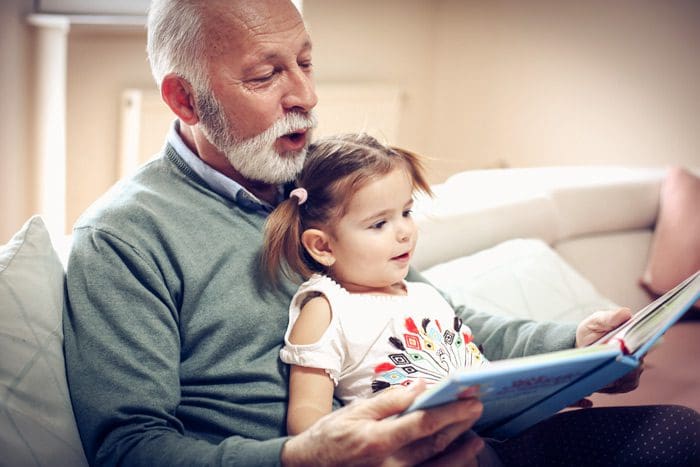
Story Time as a Resource
Many parents and children enjoy reading—either aloud together, or silently and separately, but with plenty of conversation afterward. If a parent or other loved one is struggling with addiction, books for young people about substance abuse disorders may prove a valuable tool. Books can offer a safe, comforting way to start a conversation or to offer guidance. Of course, no book is a substitute for honest talk in a family, but if you find yourself trying to help children understand what’s going on and find positive ways to cope, these books (and others like them) might be excellent resources.
This list focuses on works of fiction. It should be noted that there are many exceptional non-fiction books out there, too. And, of course, there are many, many books available for adults, as well, including self-help books and motivational books for those in recovery.
My Big Sister Takes Drugs by Judith Vigna (1995)
Paul struggles to understand what is happening as his older sister falls in with the wrong crowd and starts to drink and experiment with drugs. This illustrated book is appropriate for kids in the early grades of elementary school.
Children’s Book Review Service said of the book: “The well-written text offers help and emphasizes the strength of family love and loyalty…Each illustration is a story of emotions all by itself.
Critters Cry Too by Anthony Curcio (2015)
This picture book takes a fanciful approach to a difficult topic. It’s opening lines set the tone: “Hello! I am doctor Rymer Roach and I am here to tell you the sadappy (In critter talk, “sadappy” means both sad and happy!) story of when Wheneveritwas took over the small land of Zapatos.”
An Amazon reviewer was impressed: “I found Critters Cry Too by Anthony Curcio to be an extremely insightful, informative, and entertaining children’s book. I heartedly [sic] enjoyed reading this moving story of Calvin Critter and his family and their struggles with addiction. The author does an excellent job of tackling and explaining a hard topic to kids.”
The Dragon Who Lives at Our House by Elaine Mitchell Palmore; Illustrated by Norris Hall (2011)
Described as “A story of what it feels like to lose control of your life,” The Dragon Who Lives at Our House features engaging illustrations (so engaging that some readers think the dragon—named Al—isn’t a grim enough representation of alcoholism) and a story designed to appeal to young readers.
An Amazon reader writes: “Excellent resource! I work in behavioral health with parents involved with DCS. This is an amazing child-friendly book to explain the devastating effects of substances on families.”
Emmy’s Question by Jeannine Auth (2007)
This award-winning Young Adult novel is structured like a diary. The main character recounts her experiences as her family comes to terms with her mother’s alcoholism.
Christy Paul, a Licensed Mental Health Counselor, praises Emmy’s Question: “This captivating book should become required reading for children of alcoholics and their families, for it is a message of hope. It is an inspiring story of a young girl’s growth and maturity as she realizes that even though she cannot fix her mother, she is able to find the best about herself.”
Because of Winn-Dixie by Kate DiCamillo (2000)
DiCamillo garnered a Newbery Honor for this widely beloved story of a girl and her dog. Opal is 10 years old, and her mother is an alcoholic. The book is a story of friendship and self-reinvention.
Newsday gave the book a glowing review: “The books’ truthfulness is what makes it so powerful. People can identify with the fact that everyone sort of isolates themselves because of a misconnection or a loss or whatever is in their lives.”
The Year of My Miraculous Reappearance by Catherine Ryan Hyde (2009)
In this YA novel, alcoholism affects two generations. Cynnie’s mother is an alcoholic and sends her daughter away. To cope with the loss, the 13-year-old is soon following in her mother’s footsteps, drinking and making poor decisions.
Of the novel, Stephanie L. Petruso, a librarian in Odenton, Maryland, writes: “Hyde illustrates well how quickly a person can fall into the same patterns that they abhor in others, or choose a different path. Cynnie’s internal conflict between wanting to be seen by those around her and trying to disappear, either into her tree house or alcohol, is very well drawn. Troubled teens may be able to find some of themselves in her. This is a heavy novel, and will probably require some pushing, but it is a good discussion starter.”
The Books are for Young People, but an Adult Should Read Them First
It is probably not a good idea to just grab a copy of one of these books—or the many other options out there—and hand it over to a child or young adult. Take the time to read the book yourself first to ensure you are comfortable with its portrayal of substance abuse disorders, its approach to solutions, and any other content issues that might deserve your attention. While books like these may make conversations easier, you want to be sure the books you choose reflect your values.
Let Us Help You Write Your Own Recovery Story
Great Oaks Recovery, one of the leading addiction treatment centers in Texas, is ready to help you change the plot of your own story. If you or a loved one need help overcoming substance abuse disorder and starting a life of lasting sobriety, please contact us. We want to help ensure your recovery story has a happy ending.


